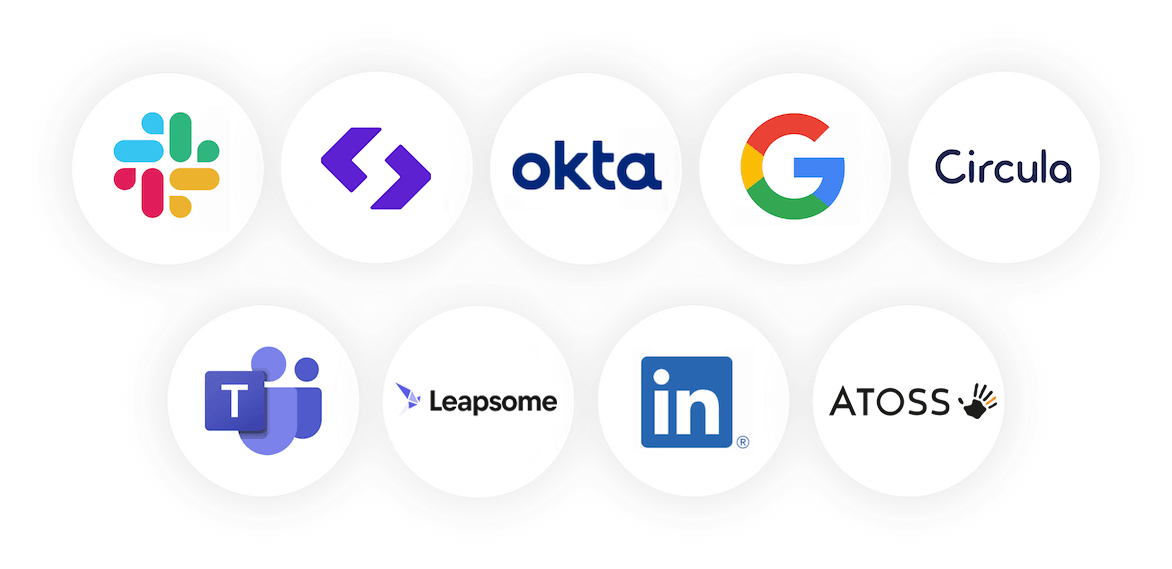12. March 2024
How to structure the most impactful performance reviews

What’s a change you’d love to make to your performance review cycles in order to really inspire more meaningful career conversations and overall development?
Along with connecting your HR and L&D strategy and nurturing and developing your people, high-impact performance reviews are an important piece of the puzzle for building better retention and engagement with great employee development.
But what are the most common mistakes many organisations make when it comes to reviewing the work of their employees and looking forward at the best ways in which they can grow in the role?
We spoke to Becky Wallace, Head of People at learning platform LearnUpon, who shares her insights on recency bias, self-reflection, career frameworks and how to boost buy-in from your middle managers.
1. Introduce regular self-reflection
Performance management should be continuous throughout the year and not just a once-a-year activity, reminds Becky. When the team at LearnUpon surveyed their employees on this, 85% said they would value the process of completing a quarterly self-reflection. These quarterly self-reflections bring a variety of unexpected benefits for employees, says Becky:
“They help to avoid recency bias and ensure achievements are not missed in their annual performance review. They also allow for feedback to be shared in real time to allow the person the opportunity to work on any development areas as they arise.”
For those that may be concerned by a lack of time available, Becky urges to treat these as developmental conversations and check-ins, rather than as additional formal performance reviews.
2. Offer skip level interviews
Building in self-reflections is just one of two important changes Becky advises HR leaders to think about making to their performance reviews. The second is to begin offering skip level interviews (interviews with your direct report’s direct report) to keep the lines of communication open between employees on the ground and senior leadership. This even travels as high up as executive level, Becky explains:
“Our CTO Des Anderson gets through a phenomenal number of these every year to make sure information is being passed down through the company as well as gathering valuable feedback from employees.” This will help enable your organisation to stay on top of any potential issues with employee satisfaction, engagement or processes and to address them before they become more widespread sources of discontent.
3. Try to avoid recency bias
The danger of having irregular performance reviews is that it makes it easy to slip into ‘recency bias’ and only talk about what has happened in the last say two months of the year, says Becky. To avoid this, establish a performance enablement process that collects documentation on an ongoing basis.
Becky shares for example, this can include documentation from 1:1s between managers and employees, previous quarterly check-ins and feedback that an employee may have received throughout the year. The idea here is to keep this data at our fingertips when it’s time to write reviews: “This makes it as easy as possible to ensure you’re showcasing your top accomplishments for the full performance period.”
4. Be as hyper-specific as possible
On this point, it’s important to bring data into your review as much as possible, says Becky: “We ask our employees to focus on what they’ve done and how they’ve done it. For example, if you were responsible for a team getting a 95% customer satisfaction score, call that out and highlight the skills and competencies that got you there.”
And in general for managers, it’s crucial to focus only on the period at hand. Becky explains: “When preparing to write a review, it’s important to step back and consider potential reviewer biases. We should always focus only on the performance period being reviewed and avoid using data or feedback from a previous review period.”
5. Enable the right training for managers
More and more, it’s becoming clear that middle managers aren’t getting the support they need. And as the people who are actually responsible for executing your performance review cycles across the company, don’t underestimate the value of supporting them in your strategy, says Becky.
She explains that underestimating the amount of training and comms to ensure effective performance reviews is a common mistake that businesses make. In particular, this training should be offered at the right time: “Managers are time-poor and it is essential that we meet them where they are to deliver engaging learning experiences.”
For the team at LearnUpon, this meant scheduling training in advance, making everything available on demand and embedding micro-training into their internal knowledge base: “Effective training can help overcome challenges we see in performance reviews such as biases, lack of quality feedback and the need to have difficult conversations.”
6. Have solid frameworks in place
Having the correct infrastructure in place for employees to navigate their careers in your organisation is another key step for HR leaders hoping to improve their performance reviews.
Last year, LearnUpon launched a ‘Global Competency Framework’ that gave clarity to employees about the competencies and skills expected at each job level. They also provided an additional framework for people manager-specific skills, along with team-specific skills.
“These make it easier for employees and their managers to assess how someone is performing overall, identifying areas of strength and opportunities and supporting our people to grow and develop”, says Becky.
The team also put a big emphasis on performance calibration, in which managers take part in department calibration sessions to apply the same expectations and standards across the organisation to ensure fair and consistent decisions are made.
Looking for an even smarter way to connect your L&D and HR processes? Join us for our upcoming webinar with LearnUpon: How to build high-performing teams with internal development on Tuesday March 19th. Reserve your space here.

Hannah Popham
Hannah is a Senior Content Marketing Manager at Personio. She loves writing about the ever-changing ways that we work and how they intersect with our lives outside work.


